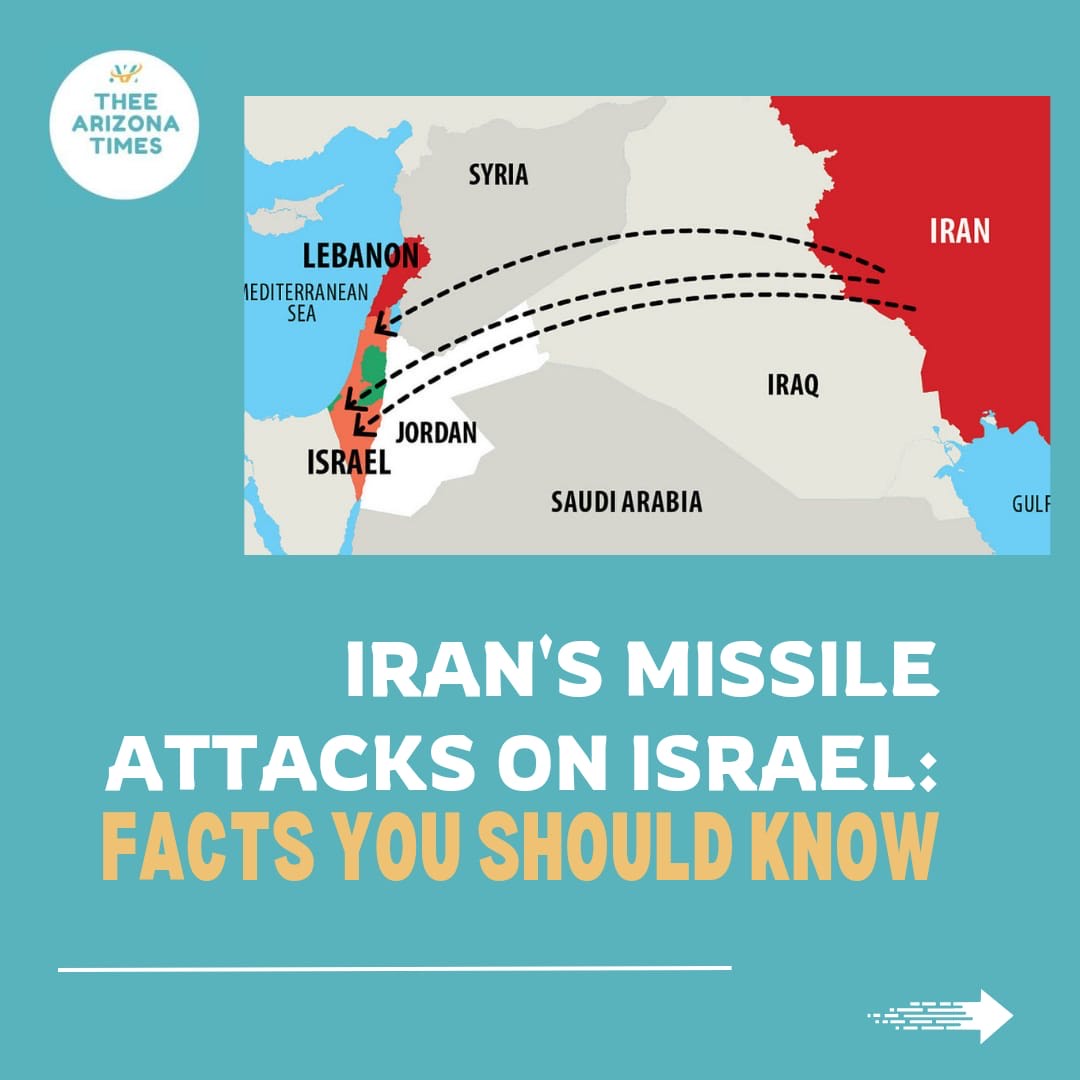Iran Launched Cruise Missiles and Ballistic Missiles in Attack, Israeli Military Says
With the United States promising “ironclad” support for Israel, Iran risked a catastrophic escalation when it unleashed a barrage of explosive drones, ballistic missiles, and cruise missiles into Israel late on Saturday. This was Iran’s first direct strike on Israeli territory.
What caused this attack? According to the Iravani, the attacks were carried out expressly in retribution for an Israeli attack on April 1 that Iran claims targeted diplomatic facilities in Damascus. Iran said the attack went against international law and killed seven of the Iranian military advisors, including important officers of the Iranian Revolutionary Guard Corps.
While Israel has yet to claim responsibility for its attack on an Iranian consulate in Damascus on April 1, which killed Mohammed Reza Zaghariyeh, a top commander of the Revolutionary Guard, and seven other Guard officers, an Israeli Defense Forces spokesman said to CNN that their intelligence indicates the building was a Quds Force military building, not a consulate.
The Israeli military has been preparing for possible Iranian retaliation for the attack on the Damascus consulate since last week when Iranian President Hassan Rowhani vowed that Israel “will be punished and will be” for the attack, which he called an operation “equal to one on Iran’s soil.” In regards to this proclamation of revenge, U.S. President Joe Biden, warned Iran against an attack on Friday, while still pledging their allegiance to Israel.
“We are committed to protecting Israel, we will stand with Israel, and we will help protect Israel, and Iran will fail,” he said.
Rear-Adm. Daniel Hagari, the military spokesman, said that the country’s defense and offensive forces are “at the highest state of readiness” in preparation for the large-scale Iranian attack.
The military said that sirens will be sounded in any areas that are at risk and that its defenses are ready to deal with Iranian drones that it described as “explosives”.
“We are used to having only a few seconds to react and reach our shelters when any missiles approach. In this case, the warning comes several hours in advance, which naturally heightens the anxiety of the Israeli public,” said Channel 12 TV’s social media correspondent, Nir Dvori.
On Saturday night, the Israeli military warned residents of the occupied Golan to stay near bomb shelters, saying the area would be put on alert for the possibility of drone strikes.
Both Israel and Lebanon said they would close their airspace on Saturday evening.
Jordan, which shares a land border with Iran, has readied air defense systems to repel any drone or rocket that invades its territory, according to two regional security sources.
On the other hand, Syria, a close ally of Iran, has placed its capital and major bases under high alert, according to army sources.
A senior administration official said that Iran fired over 100 ballistic missiles against Israel. In Israel, Reuters correspondents reported hearing huge thuds and booms in the distance, which they identified as aerial interceptions of explosive drones, accompanied by sirens blaring. Early on Sunday morning, shortly before 2:00 am local time, Amman residents told CNN they too heard and witnessed action in the skies over several sections of the Jordanian city.
“We initially heard distant blasts. When we looked outside, it was like flares and flashes in the sky. We saw something going up and then coming down,” reported a man in west Amman, who wanted to remain anonymous.
In an update released early on Sunday local time, Hagari stated that the great majority of the missiles were intercepted by Israel’s aerial defense systems outside of Israeli land.
He stated that several rockets had touched down on Israeli soil and that an IDF base in southern Israel had been targeted, causing minor infrastructural damage.
Numerous UAVs were intercepted outside of Israeli land, and the Israeli air force has intercepted over ten cruise missiles outside of Israeli territory.
“We are prepared for any threat to Israel, and our jets are still in the air intercepting targets,” Hagari said. “We’ll take all necessary measures to protect the state of Israel.”
According to US sources, the US military also assisted Israel in intercepting over 70 drones and at least three ballistic missiles.
The United States declared that nearly all of Iran’s missiles and drones, including over 100 ballistic missiles, had been destroyed. According to the official, no cruise missile made contact and nothing of “value” was damaged.
Following Iran’s retaliatory strikes against Israel, US President Joe Biden made it clear to Israeli Prime Minister Benjamin Netanyahu during their phone conversation that the US will not take part in any offensive operations against Iran even if their “ironclad” commitment to Israel remains, according to a senior administration official who spoke with CNN.
James Bays, the diplomatic editor of Al Jazeera, stated that “Israel is under tremendous pressure behind the scenes to exercise restraint as US President Joe Biden had warned not to be involved in any attack against Iran.”
Although Israel and Iran have been fierce enemies for many years, their conflict has primarily been fought through proxies or by attacking one another’s military that are present in third-world nations.
According to Iran’s UN mission, “Iran’s response will be considerably more severe should the Israeli regime make another mistake.”
Additionally, the Islamic Revolutionary Guard Corps (IRGC) of Iran declared, “The Islamic Republic of Iran will respond in kind and proportionate measure to the source of any threat posed by the US and the Zionist nationalism.”
But it also stated that Iran “deemed the matter concluded” at this point.
‘





